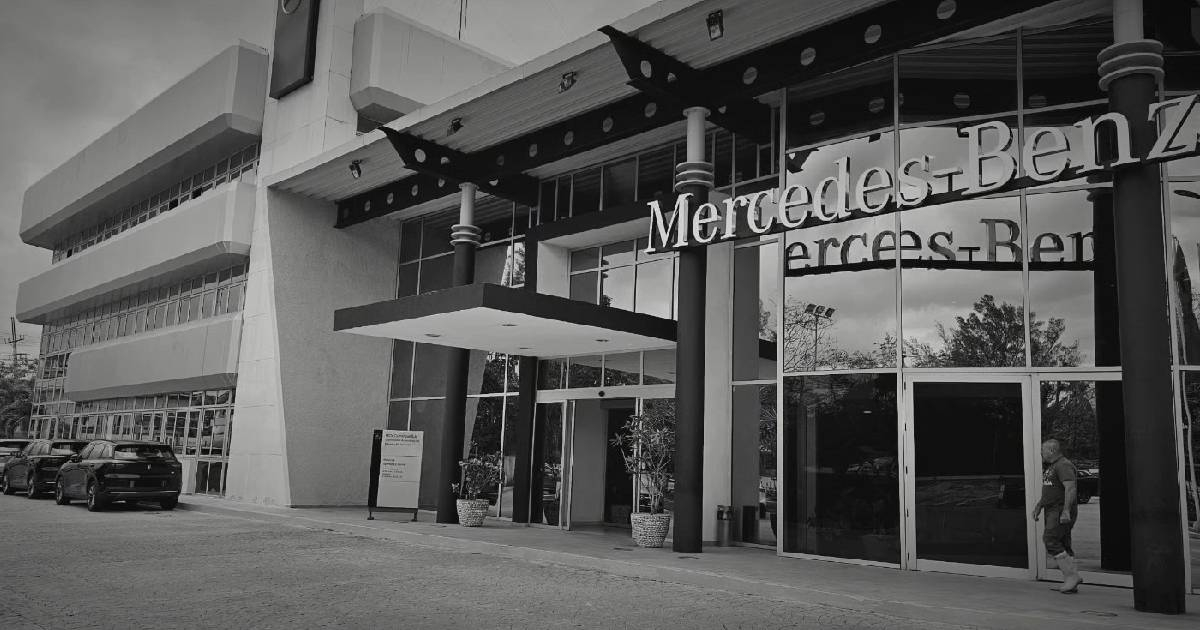
Related videos:
Since its opening for contracts on January 9, the Mercedes Benz office on the island has seen overwhelming demand from customers interested in purchasing vehicles from the brand under the new Decree 119/24, which allows individuals in Cuba to buy cars in dollars.
The commercial office in Havana highlighted on Facebook that the high demand has led to an overload of appointments, leaving many interested parties on a waiting list to be attended to.
The company released a statement thanking the Cubans for their trust and stated that the hiring process is being conducted in an orderly manner, but there is a high accumulation of applications.
The volume of requests continues to rise due to the interest generated by the new law that came into effect on January 1 regarding the import, sale, and transfer of vehicles on the island, the company noted.
MCV Comercial S.A. clarified that appointments for the hiring of vehicles are assigned on a first-come, first-served basis in a registry that started in October, which has resulted in longer wait times than expected.
The company stated that, although not all models are currently available in the market, continuous imports are being made to meet the growing demand.
The vehicles will be available for hire as soon as they arrive in the country, and according to a recent publication by the company, prices range from $51,000 to $190,000.
The company also emphasized that the process is completely transparent and direct, with no intermediaries, installment payments, or parallel procedures.
On Thursday, the company celebrated the sale of its first car to a private customer in Cuba and shared the moment when the first contract was signed with a Cuban client.
This event takes place within the context of a new policy that relaxes restrictions on the sale of foreign vehicles, but it also highlights the growing polarization on the island.
While 90% of the population lives in extreme poverty according to recent figures published by international organizations, an emerging sector can afford to buy cars that, as per the Mercedes Benz catalog released on Wednesday, have a starting price of 50,000 dollars.
Frequently Asked Questions about Car Buying in Cuba under the New Law
Why is there a high demand for Mercedes-Benz cars in Cuba?
The high demand for Mercedes-Benz cars in Cuba is due to the enactment of Decree 119/24, which allows individuals in the island to purchase vehicles in dollars. This has generated significant interest in acquiring luxury vehicles, such as those from the Mercedes-Benz brand, despite the high prices ranging from $51,000 to $190,000. The new law has relaxed previous restrictions, allowing for more direct access to these automobiles.
How are appointments for vehicle purchases managed in Cuba?
Appointments for vehicle purchases are managed in order of registration, which began in October. Due to high demand, a waiting list has been created, and the appointment process is conducted in an orderly manner, although records continue to accumulate. The company MCV Comercial S.A., the official distributor of Mercedes-Benz, is responsible for coordinating these appointments to ensure that interested parties can access vehicle purchases as soon as they become available.
What are the prices of Mercedes-Benz cars in Cuba under the new regulations?
The prices of Mercedes-Benz cars in Cuba range from $51,000 to $190,000, depending on the model and specifications of the vehicle. These prices include taxes and reflect the marketing policy in freely convertible currency, implemented by the Cuban government to update access to vehicles on the island. Although prices are high, there is an emerging sector in Cuba that can afford to purchase these luxury vehicles.
How does the new vehicle import policy affect the Cuban population?
The new vehicle import policy in Cuba has loosened restrictions on car purchases, allowing individuals to buy vehicles in dollars. However, the measure also highlights the growing polarization on the island, as only a small segment of the population can afford these cars, while the majority live in precarious economic conditions. This policy is portrayed as a step forward in vehicle access, but it does not address the deep economic inequalities that exist in the country.
Filed under: